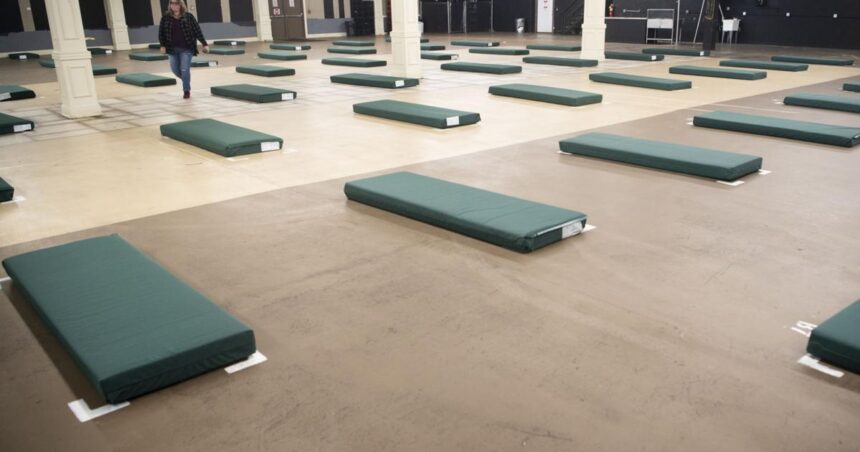The city of Missoula plans to use its emergency homelessness declaration from 2023 to supplement its 2025 budget, which would allow the city to partially fund a one-time spending request for the Johnson Street Emergency Shelter.
The money from the declaration, roughly $409,000, would be raised outside of the normal local budget system, which state law caps at a certain amount each year. No vote by the public will be required to use the money.
“I am suggesting we use it for two reasons. One, it is a one-time tax increase … and secondly, it does direct those funds specifically to the Johnson Street Shelter,” Missoula Mayor Andrea Davis said on Wednesday. “It does not pay for it in totality.”
In 2023, then Missoula Mayor Jordan Hess declared an emergency over homelessness, reasoning that the population was increasing and resources would be needed to support the city.
People are also reading…
Under state law, declaring an emergency allows the city to levy an additional two mills, or $409,000, for the next fiscal year. Money available from the declaration could be budgeted the following fiscal year, which falls into the city’s current 2025 budgeting process.
The money would partially fund the Johnson Street Shelter. Davis said the city’s remaining American Rescue Plan Act dollars that the city first received in 2021 would fund the rest of the shelter.
City council will vote on the emergency levy Monday, and if approved, it will hit tax bills this fall. City staff reported on Wednesday that the extra tax would cost $3.34 per $100,000 of assessed home value.
Mayor Davis emphasized that the emergency mills are not the same as a crisis services levy, such as the one proposed in 2022. That levy was voted down by both city and county residents.
The Johnson Street Emergency Shelter would cost roughly $1.8 million to run for another year, and urban camping costs were budgeted at $650,000 in the mayor’s executive budget proposal.
Other funding for the shelter could come from a tax remittance from the Missoula Redevelopment Agency. A tax remittance would take some funding from MRA and transfer it to other taxing jurisdictions.
The Missoulian previously reported that Missoula County requested the remittance to jointly fund the shelter for another year. Davis told the Missoulian the city’s last ARPA dollars would fund the remaining pieces.
Griffen Smith is the local government reporter for the Missoulian.





